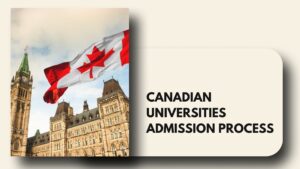- Master’s graduates can earn USD 65,000–130,000 annually (INR 60L–1.2Cr), while diploma holders earn USD 42,000–78,000 annually (INR 38L–71L).
- Master’s degrees open leadership, specialist, and doctoral pathways; diplomas prepare students for mid-level roles and professional certification.
- Diplomas focus on practical, job-ready skills, while master’s programmes offer advanced theoretical knowledge and include research projects.

After completing your bachelor’s degree, you face a critical career decision that impacts your earning potential and professional trajectory. Should you pursue a postgraduate diploma for rapid skill development and quick job entry, or invest in a comprehensive master’s degree for long-term career advancement and leadership opportunities?
This guide compares these two pathways across duration, curriculum design, career prospects, and long-term value to help you choose the qualification that aligns with your goals.
What Is a Postgraduate Diploma?
A postgraduate diploma is an advanced academic qualification that sits between a bachelor’s degree and a master’s degree. It provides advanced study in a specific subject area, but does not include the dissertation or thesis that a full master’s degree requires.
It is designed to give students specialised knowledge and professional skills in a shorter duration, usually 6 to 12 months, through taught modules and practical coursework. Many students pursue a postgraduate diploma to up skill, switch fields, or meet professional licensing or industry requirements.
What Is a Master’s Degree?
A master’s degree is a comprehensive postgraduate qualification that combines advanced coursework with a significant independent research component. While both master’s degrees and postgraduate diplomas involve graduate-level study, master’s programmes include mandatory dissertation or thesis work that requires students to conduct original research under academic supervision.
Master’s programmes are designed for students who want expert-level knowledge, career advancement into specialised or leadership roles, or eligibility for PhD or research pathways. The programme typically takes 1 to 2 years and involves structured teaching plus independent supervised research.
Postgraduate Diploma vs Master’s Degree: Key Differences
Although both are postgraduate qualifications, a postgraduate diploma and a master’s degree differ in academic depth, programme structure, and career outcomes. The comparison below highlights the essential distinctions to help you evaluate which option best supports you:
| Feature | Postgraduate Diploma | Master’s Degree |
|---|---|---|
| Duration | 6 to 12 months | 1 to 2 years |
| Focus | Practical, skills-based learning | Advanced theoretical and research-based learning |
| Research Requirement | No dissertation | Mandatory dissertation or major research project |
| Curriculum Style | Taught modules and applied coursework | Taught modules + independent research |
| Career Outcomes | Quick job entry, industry roles, upskilling | Specialist positions, leadership roles, PhD eligibility |
| Cost | UK: ₹6–17 lakhs USA: ₹8–19 lakhs Canada: ₹10–18 lakhs Australia: ₹12–20 lakhs | UK: ₹20–50 lakhs USA: ₹25–60 lakhs Canada: ₹15–30 lakhs Australia: ₹18–42 lakhs |
| Workload | Moderate; mostly coursework | Higher; includes research and academic writing |
| Ideal For | Skill enhancement, career switch, professional certification | Long-term academic or leadership growth, research careers |
Career Opportunities and Salary Outcomes
Employment prospects and professional recognition differ substantially between postgraduate diplomas and master’s degrees. Below are the top programmes and their typical salary ranges:
Top 5 Master’s Degrees & Salaries
Master’s graduates typically earn between USD 65,000 to USD 130,000 annually (INR 60L to INR 1.2Cr) across major specialisations.
| Master’s Degree | Top 3 Job Roles | Average Annual Salary |
|---|---|---|
| Master of Science in Computer Science & Data Science | Software Engineer, Data Scientist, Machine Learning Engineer | USD 75,000 – 120,000 (INR 68L – 1Cr) |
| Master of Business Administration (MBA) | Management Consultant, Business Analyst, Operations Manager | USD 70,000 – 130,000 (INR 63.6L – 1.2Cr) |
| Master of Science in Nursing & Healthcare | Nurse Practitioner, Nurse Anesthetist, Healthcare Administrator | USD 80,000 – 130,000 (INR 72.7L – 1.2Cr) |
| Master of Science in Engineering | Project Manager, Systems Engineer, Engineering Manager | USD 75,000 – 125,000 (INR 68.18L – 1.1Cr) |
| Master of Science in Finance & Economics | Financial Analyst, Investment Analyst, Risk Manager | USD 65,000 – 120,000 (INR 60L – 1Cr) |
Top 5 Postgraduate Diplomas & Salaries
Postgraduate diploma holders typically earn between USD 42,000 to USD 78,000 annually (INR 38L to INR 71L) with fast industry entry and practical, job-ready skills.
| Postgraduate Diploma | Top 3 Job Roles | Average Annual Salary |
|---|---|---|
| Business Management Diploma | Supervisor, Operations Coordinator, Business Analyst | USD 75,000 – 120,000 (INR 68L – 1Cr) |
| Digital Marketing Diploma | Digital Marketing Specialist, SEO Manager, Content Strategist | USD 70,000 – 130,000 (INR 63.6L – 1.2Cr) |
| Healthcare Specialization Diploma | Clinical Specialist, Healthcare Coordinator, Patient Care Specialist | USD 80,000 – 130,000 (INR 72.7L – 1.2Cr) |
| Information Technology Diploma | IT Support Specialist, Junior Software Developer, Systems Administrator | USD 75,000 – 125,000 (INR 68.18L – 1.1Cr) |
| Project Management Diploma | Project Coordinator, Team Lead, Operations Manager | USD 65,000 – 120,000 (INR 60L – 1Cr) |
Which Qualification Adds More Long-Term Value for Your Career?
Your final decision depends on balancing immediate career needs against long-term professional ambitions, financial capacity, and available time resources.
Choose a Postgraduate Diploma if you:
- Need rapid skill development and workforce entry within 6–12 months
- Want a cost-effective postgraduate qualification
- Prefer practical, job-focused learning rather than academic research
- Plan to move into specialized mid-level industry roles quickly
- Want the flexibility to continue working while studying
May upgrade to a full master’s degree later
Choose a Master’s Degree if you:
- Aim for senior leadership or academic/teaching roles
- Can commit 1–2 years to intensive study and learning
- Need globally recognized credentials for international mobility
- May pursue doctoral studies (PhD/DBA) in the future
- Value research depth and advanced theoretical understanding
- Want higher long-term earning potential and faster career progression
- Require advanced qualifications for regulated professions
Key Takeaways
Both postgraduate diplomas and master’s degrees represent valid pathways to professional success. Postgraduate diplomas provide focused, practical training over 6–12 months, allowing students to quickly enter mid-level industry roles and gain job-ready skills. They are suitable for those seeking rapid career entry, upskilling, or professional certification without a long study commitment.
Master’s degrees, spanning 1–2 years, deliver advanced theoretical knowledge, research experience, and pathways to leadership or doctoral roles. They offer higher long-term earning potential compared with diplomas. Students should weigh immediate career needs against long-term ambitions to select the qualification that maximizes professional growth and future opportunities.
Kickstart your postgraduate journey with confidence! AdmitX provides end-to-end support from university selection to visa approval. Our services include:
- University Selection Guidance
- SOP Review
- Study-Abroad Document Templates
- Free IELTS Bootcamp Course
- Scholarship Assistance
- Visa Support Services
And much more!
Book your free study abroad counselling session with our experts today!
FAQs
What is a postgraduate diploma and how long does it take to complete?
A postgraduate diploma is an advanced qualification that provides specialised knowledge and professional skills through taught modules and practical coursework. It typically takes 6 to 12 months to complete full-time, or 18 to 24 months part-time.
What’s the difference between a PG Diploma and a Master’s?
A Master’s degree is a longer, more comprehensive program that includes a mandatory dissertation or research project, while a PG Diploma is a shorter course focused on taught modules without a major research requirement. Master’s programs typically take 1 to 2 years, whereas PG Diplomas can be completed in 6 to 12 months.
How much can master's degree holders earn annually compared to postgraduate diploma holders?
Master’s graduates typically earn USD 70,000 to USD 130,000 annually (INR 63.6L to INR 1.2Cr), whilst postgraduate diploma holders generally earn USD 42,000 to USD 78,000 annually (INR 38L to INR 71L), representing approximately 40-60% higher earnings potential for master’s degree holders.
Which qualification allows faster entry into the workforce: postgraduate diploma or master's degree?
Postgraduate diplomas allow significantly faster workforce entry within 6 to 12 months compared to 1 to 2 years for master’s degrees.
Can you upgrade a postgraduate diploma to a master's degree later?
Yes, many universities allow postgraduate diploma holders to upgrade to a master’s degree by completing additional coursework and a dissertation, as the diploma is typically worth 120 credits (two-thirds of a master’s degree).
Do all master's degree programmes require research and a dissertation?
Yes, all master’s degrees mandate either a dissertation or major research project as the defining component that distinguishes them from postgraduate diplomas.
Can you work whilst studying for a postgraduate diploma?
Yes, postgraduate diplomas are specifically designed with flexible part-time, evening, and online formats to accommodate working professionals who wish to continue employment whilst studying.
Which qualification offers better long-term career growth: postgraduate diploma or master's degree?
Master’s degrees generally provide superior long-term career growth with higher earning potential, access to senior leadership roles, and eligibility for doctoral studies, whilst postgraduate diplomas excel at rapid skill enhancement and industry-specific qualifications.
Are postgraduate diplomas internationally recognised for employment purposes?
Yes, postgraduate diplomas are internationally recognised, particularly in the UK, Canada, Australia, and New Zealand, though they do not typically qualify holders for PhD programme entry.
How do postgraduate diplomas help with career switching and professional development?
Postgraduate diplomas serve as conversion courses providing specialised, job-ready skills for mid-level roles within 6 to 12 months, enabling professionals to transition into new industries unrelated to their undergraduate degree.
If you are an aspirant looking to study at your dream university, book an appointment with AdmitX today and start your applications early to avail yourself of all the benefits.

















